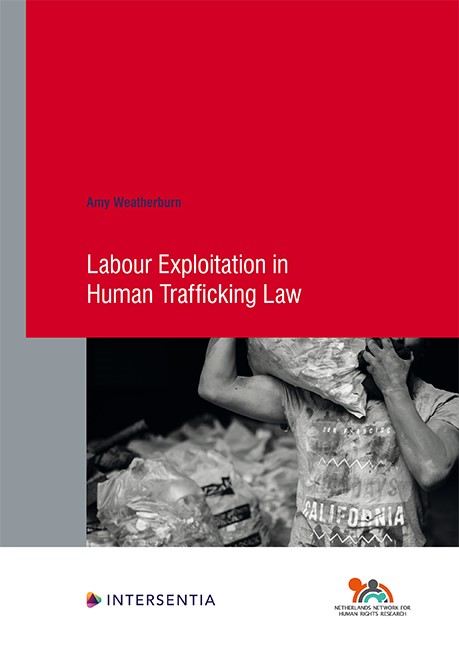Book contents
- Frontmatter
- Foreword
- Contents
- List of Abbreviations
- List of Tables
- Introduction
- PART I Exploitation in Political Theory
- PART II Labour Exploitation in Law
- PART III Labour Exploitation In The Criminal Law Of Belgium And England And Wales
- PART IV Conceptualising Labour Exploitation In Human Trafficking Law
- Conclusion
- Annex 1 List of Cases Accessed in Belgium and England and Wales
- Annex 2 Nationality of Victims and Civil Parties
- Bibliography
- Human Rights Research Series
Chapter 4 - The Legal Understanding of Slavery, Servitude and Practices Similar to Slavery
Published online by Cambridge University Press: 10 December 2021
- Frontmatter
- Foreword
- Contents
- List of Abbreviations
- List of Tables
- Introduction
- PART I Exploitation in Political Theory
- PART II Labour Exploitation in Law
- PART III Labour Exploitation In The Criminal Law Of Belgium And England And Wales
- PART IV Conceptualising Labour Exploitation In Human Trafficking Law
- Conclusion
- Annex 1 List of Cases Accessed in Belgium and England and Wales
- Annex 2 Nationality of Victims and Civil Parties
- Bibliography
- Human Rights Research Series
Summary
SLAVERY IN INTERNATIONAL AND REGIONAL LAW
The abolition of the Transatlantic slave trade and the abolition of slavery must be distinguished. Whilst the former was finally legislated in 1807 in Great Britain with the Slave Trade Act and in the United States with the Act Prohibiting Importation of Slaves, the practice of holding another in a position of slavery continued with an incremental approach to its abolition across the British Empire (1833) in the US (1865) and across Europe (early 20th century). An international approach to the suppression of both the slave trade and slavery came to fruition with the entry into force of the League of Nations International Convention to Suppress the Slave Trade and Slavery, 1926. Therein, Article 1(1) defines slavery as:
The status or condition of a person over whom any or all of the powers attaching to the right of ownership are exercised.
The international definition has been widely accepted, and is recognised as having the status of customary international law and jus cogens. Article 2 of the 1926 Slavery Convention requires:
The High Contracting Parties undertake, each in respect of the territories placed under its sovereignty, jurisdiction, protection, suzerainty or tutelage, so far as they have not already taken the necessary steps:
(a) To prevent and suppress the slave trade;
(b) To bring about, progressively and as soon as possible, the complete abolition of slavery in all its forms.
The abolition of de jure slavery was overshadowed in the Convention by the progressive nature of the provision, however the position of the international community in supporting an absolute de facto prohibition was made explicit in Article 4 of the Universal Declaration of Human Rights (UDHR), adopted by the UN General Assembly in 1948, which emphatically states:
No one shall be held in slavery or servitude; slavery and the slave trade shall be prohibited in all their forms.
Whilst the Declaration is non-binding, it set the tone for subsequent binding iterations of the prohibition in international and regional human rights treaties wherein the absolute and non-derogable de facto prohibition of ‘slavery in all its forms’ has been reinforced:
- Type
- Chapter
- Information
- Labour Exploitation in Human Trafficking Law , pp. 99 - 118Publisher: IntersentiaPrint publication year: 2021



